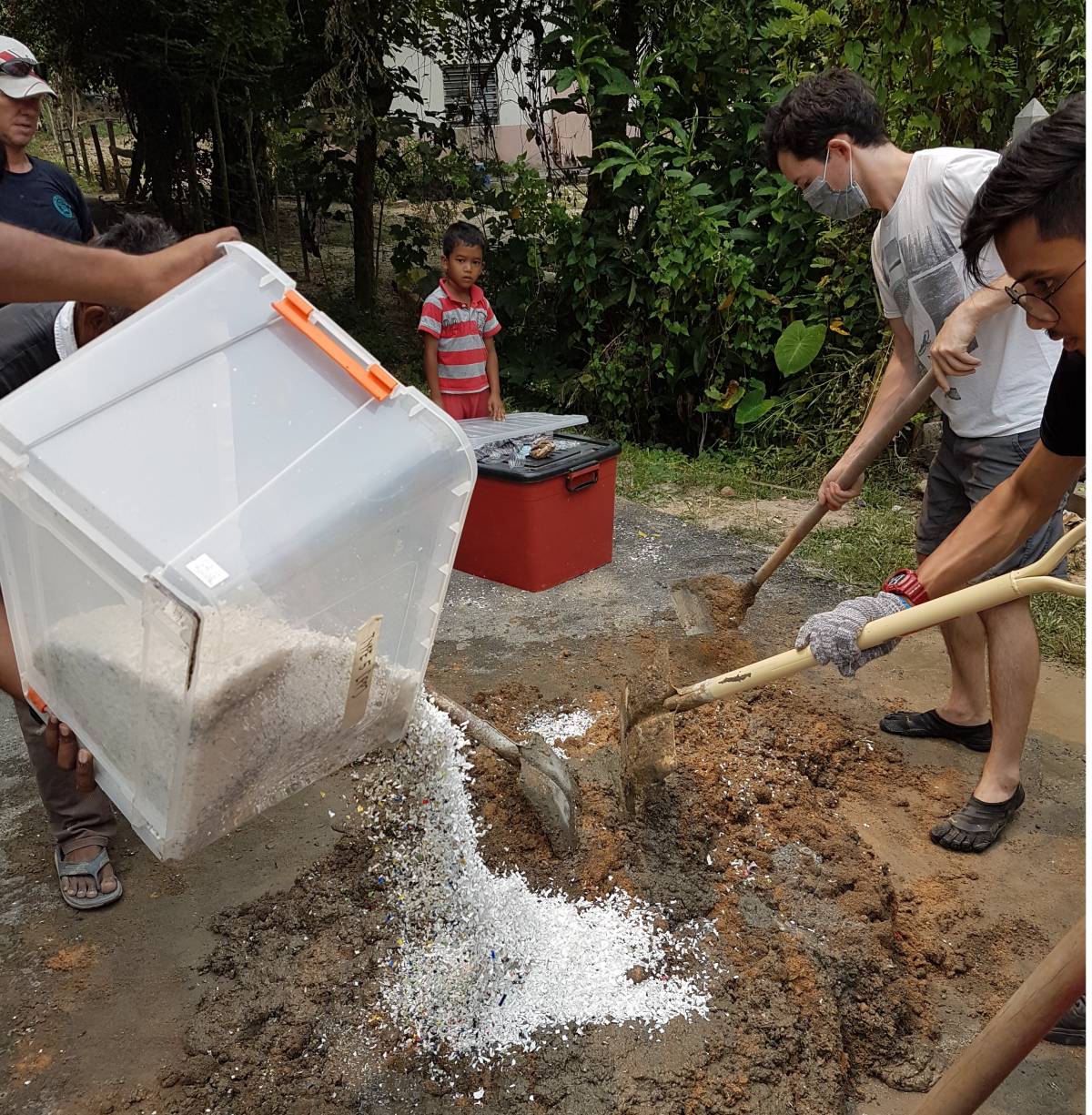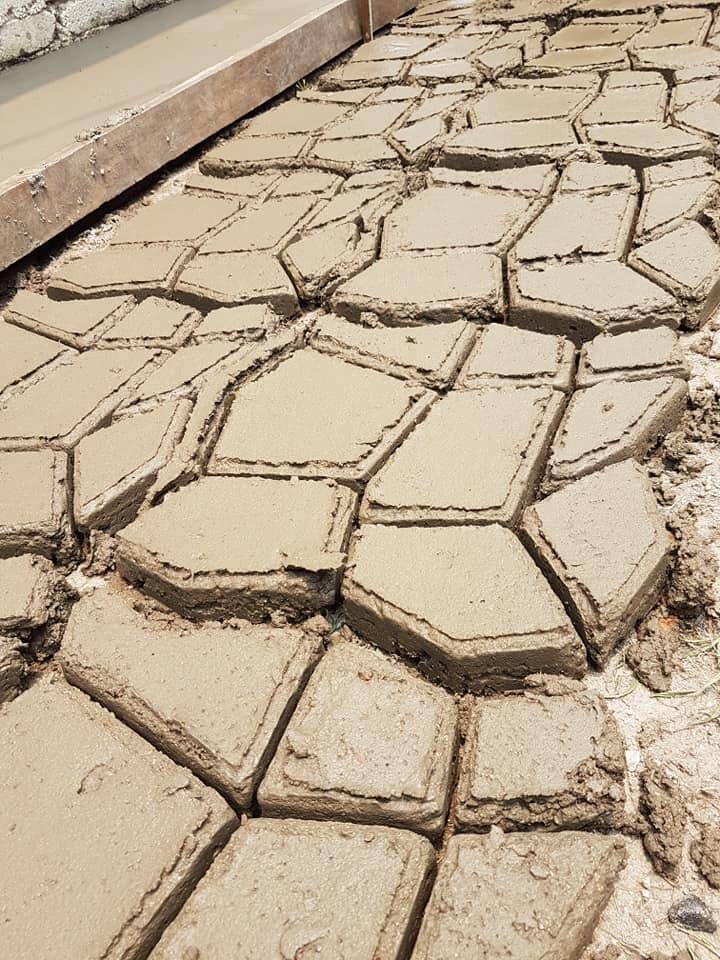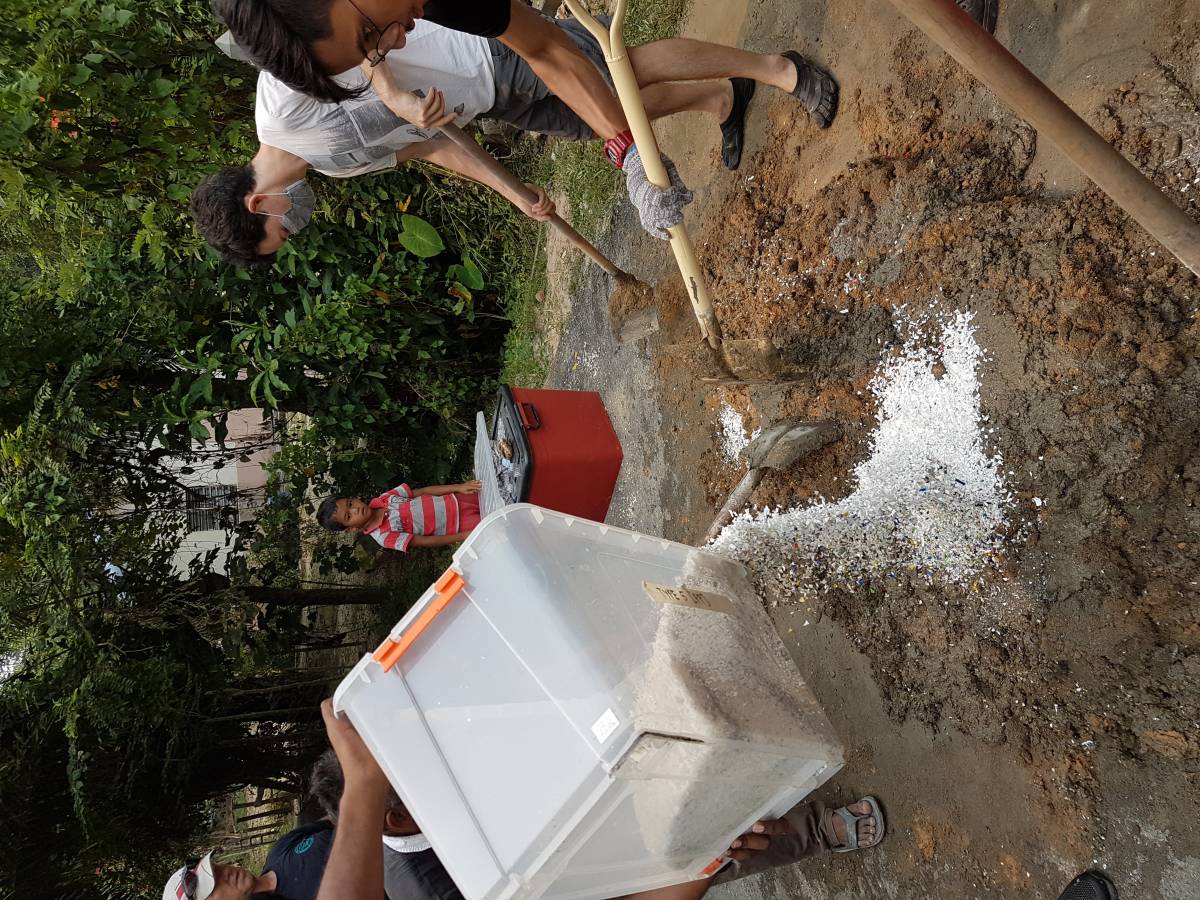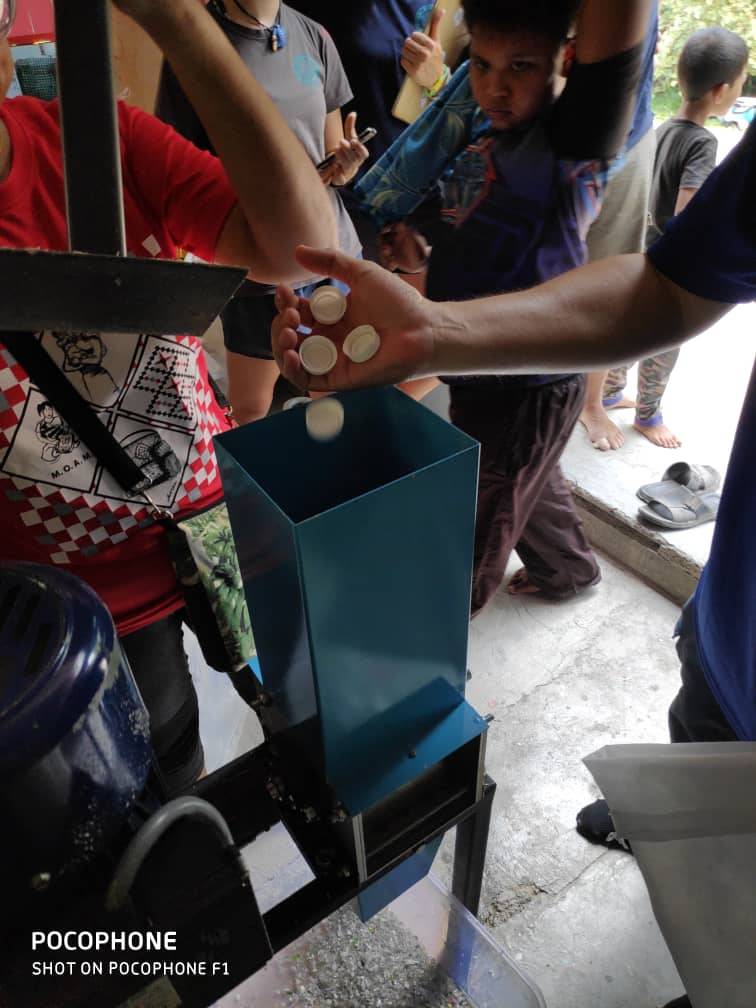Upcycling Hotel Waste through PlasticShreds Programme
Plastic chips being used to replace gravel as a building material aggregate.
Irene Millar in Conversation with Stefan Phang, Global Director ESG at Diversey, and Kevin Girard, General Manager Conrad Bali
Stefan Phang, Global Director ESG at Diversey has been an innovator in sustainability solutions for many years, so I was delighted to have the opportunity to chat with him about his most recently launched programme, PlasticShreds.
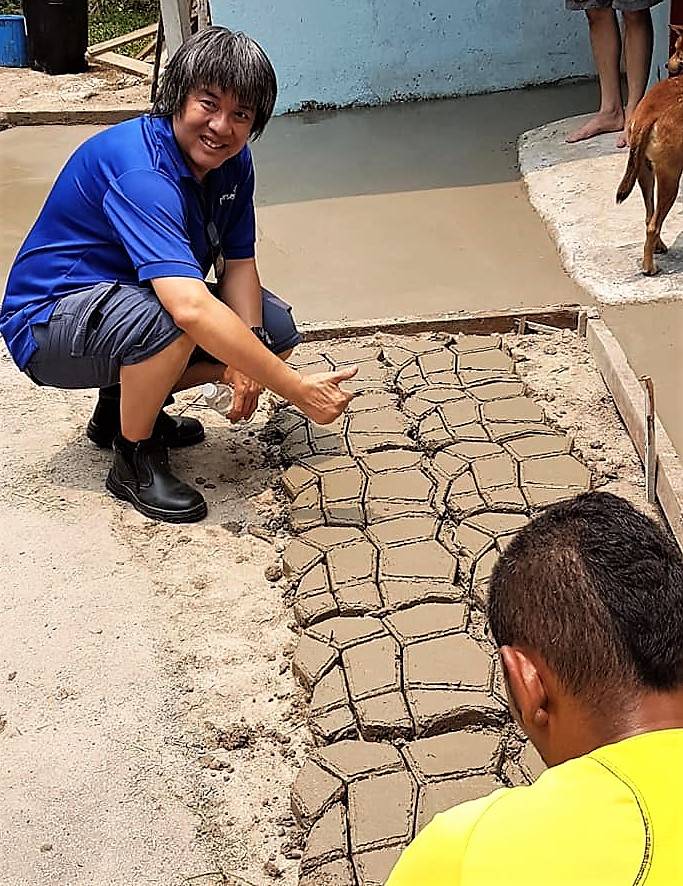
Stefan is on a mission to divert hotel waste streams from landfill by upcycling these items to products that positively impact local communities and our environment. Following on from his success with Soap For Hope and Linens For Life, his latest programme focuses on plastic waste.
The issues around plastic waste are well documented and I was curious to find out how long it’s taken to reach our current plastic predicament. I discovered that while plastic has a long history, it wasn’t until the 1950’s that bulk production for consumers of textiles, fashion and toys began. The plastic bottles that litter our environment today were only introduced in 1973.
Over a relatively short period of time, plastic waste has insidiously reached even the most remote places on earth with reports in January this year that nano-plastic pollution has been discovered in both the North and South Poles. This finding indicates that plastic waste is now polluting our air and water globally. Plastic bottles have the capacity to continue polluting our environment for another 400 years, as it’s been estimated that each bottle takes up to 450 years in a landfill to decompose.
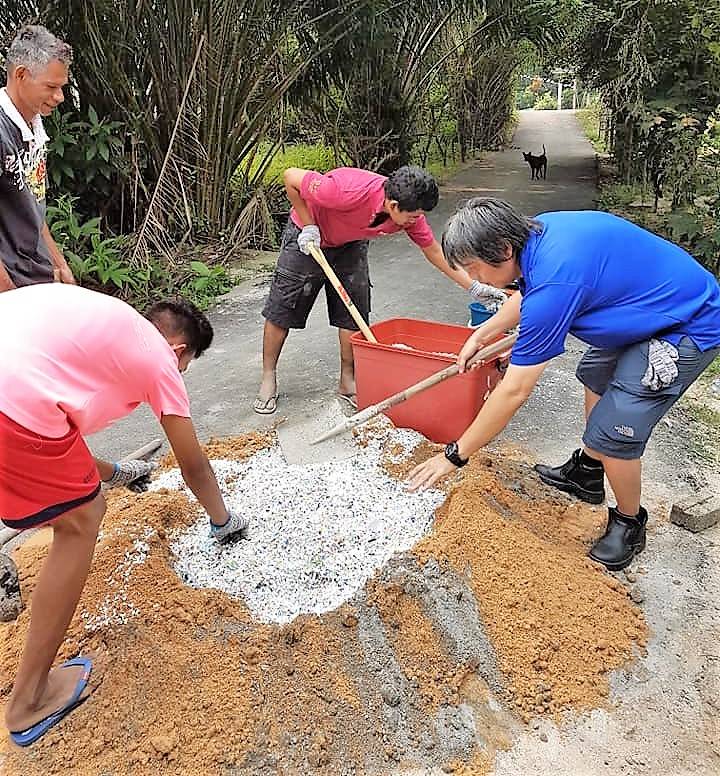 Hotels and their guests are significant contributors to the plastic waste created globally each year. Many single-use plastic items are purchased and used out of habit. With his PlasticShreds programme, Stefan aims to change unconscious behaviours by implementing the Remove, Reduce, Upcycle model to reduce the volume of plastic waste being generated, and then upcycling what remains. A self-assessment toolkit helps hotels assess how much plastic waste is being produced throughout their operation. Hotels then identify tactics and techniques on how they can reduce this waste to a minimum through the process of removing unnecessary plastic items and replacing single use plastic with a more sustainable alternative.
Hotels and their guests are significant contributors to the plastic waste created globally each year. Many single-use plastic items are purchased and used out of habit. With his PlasticShreds programme, Stefan aims to change unconscious behaviours by implementing the Remove, Reduce, Upcycle model to reduce the volume of plastic waste being generated, and then upcycling what remains. A self-assessment toolkit helps hotels assess how much plastic waste is being produced throughout their operation. Hotels then identify tactics and techniques on how they can reduce this waste to a minimum through the process of removing unnecessary plastic items and replacing single use plastic with a more sustainable alternative.
Only after removing and replacing as much plastic as they are able to, hotels can then proceed to upcycle any residual plastic waste. The PlasticShreds machine shreds all types of rigid plastic waste, including mineral water bottles, into chips. The chips produced can replace gravel as a building material aggregate to construct roads, paths, and other flat surfaces such as sports courts. This upcycling process has both environmental and economic benefits. It helps to reduce flooding created by plastic blocking drainage systems, and reduces the poisonous dioxins emitted when plastic is burned. It reduces infrastructure costs by removing the cost for gravel, and effectively ‘entombs’ the plastic within the infrastructure.
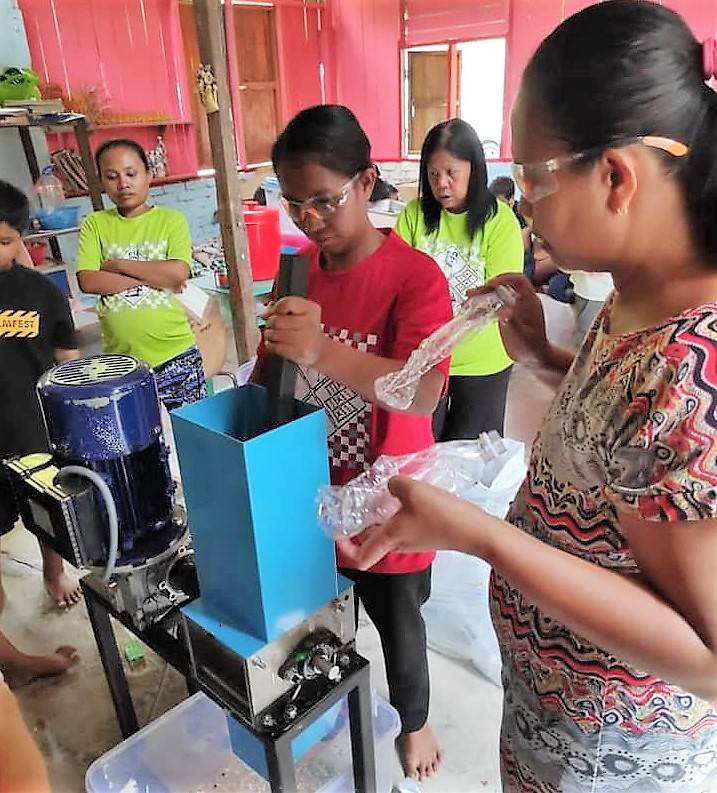 After successfully pilot testing the programme to construct pavements in Tekir Village in Malaysia, in collaboration with the DoubleTree by Hilton Hotel Melaka, Stefan’s first PlasticShreds programme was officially launched in Bali with the support of the Bali Hotels Association (BHA) and Diversey’s Bali hotel partners.
After successfully pilot testing the programme to construct pavements in Tekir Village in Malaysia, in collaboration with the DoubleTree by Hilton Hotel Melaka, Stefan’s first PlasticShreds programme was officially launched in Bali with the support of the Bali Hotels Association (BHA) and Diversey’s Bali hotel partners.
The Trans Resort Bali at Seminyak hosted the launch, and plastic bottles collected by various BHA member hotels were chipped using the PlasticShreds machine. The chips will be used to construct a pavement in one of the BHA hotels as a demonstration to showcase how easy it is to upcycle plastic waste into something useful.
Alexander Jovanovic, General Manager of The Trans Resort Bali, said, “We are always finding ways to reduce impact to the environment in Bali, and reducing the impact of single-use plastic waste is the next step that our hotels will undertake to contribute to sustainable tourism in Bali.”
Kevin Girard is the General Manager at Conrad Bali, and also the Chairman of Bali Hotels Association (BHA) Sustainability Committee, and was instrumental in organising the launch of PlasticShreds in Bali.
Conrad has already removed plastic straws from all areas of the hotel, plastic wrappers from guest in-room slippers, and plastic bottles from back of house and meeting rooms. Plastic laundry bags have been replaced by re-usable canvas bags, and in-room single use guest amenities are currently being replaced by larger compostable plastic bottles of shampoo, conditioner and body wash.
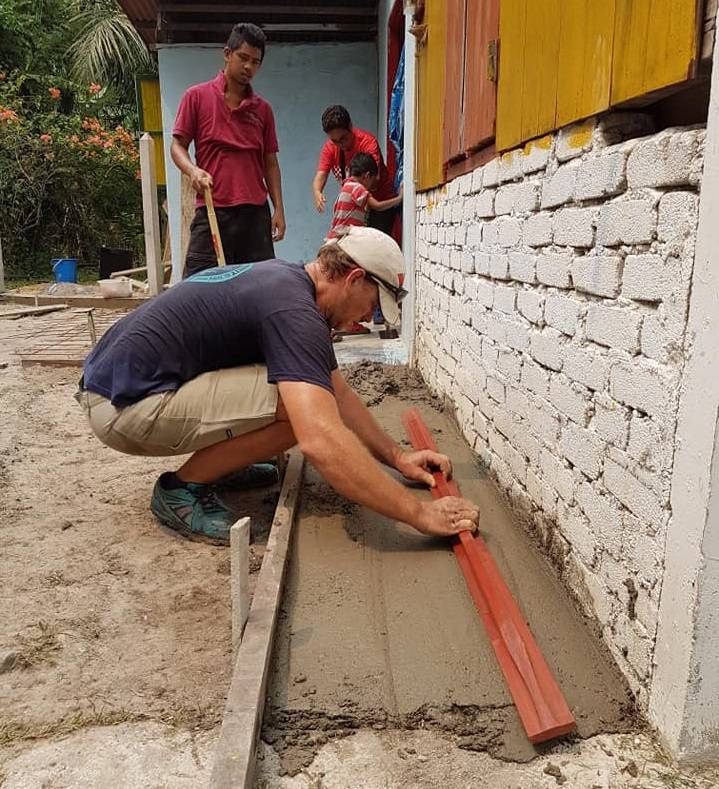 Kevin shared with me that PlasticShreds provides hotels with a more systematic and sustainable approach to the reduction and disposal of plastic waste. The Sustainable Food Festival, being held later this year in Bali, has the target of being a zero-waste event. The PlasticShreds programme has an integral part to play in achieving this target, and I look forward to sharing the success of this with you in a future article.
Kevin shared with me that PlasticShreds provides hotels with a more systematic and sustainable approach to the reduction and disposal of plastic waste. The Sustainable Food Festival, being held later this year in Bali, has the target of being a zero-waste event. The PlasticShreds programme has an integral part to play in achieving this target, and I look forward to sharing the success of this with you in a future article.
You can keep up to date with Stefan’s projects here: Creating Shared Value Programs | Diversey
Stefan is contactable by email at stefan.phang@diversey.com
Learn more about the Bali Hotels Association sustainability objectives here: Bali Environment - Bali Hotels Association
IRENE MILLAR
Passionate about sustainability, Irene would like to hear stories from people in the travel industry with knowledge, dedication and insight, on how they make a positive difference to their local communities, habitats and environment through applying sustainability principles and practices.


